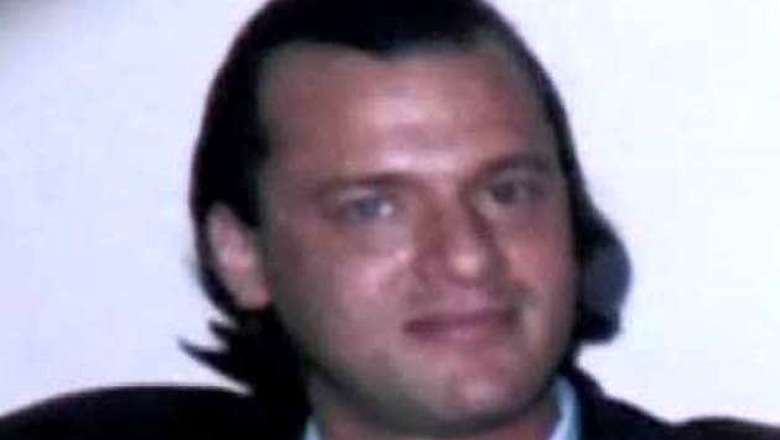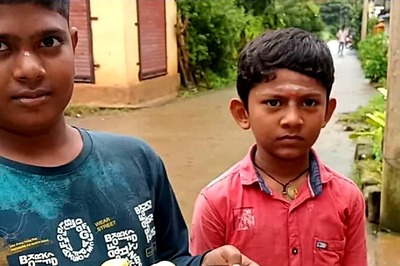
views
Washington: In what is being seen as a setback for India, the United States has ruled out the extradition of Pakistani-American Lashkar-e-Taiba terrorist David Headley - who admitted scouting targets for the deadly attacks in Mumbai on November 26, 2008 and later testified against the plotters. The 20-page report submitted by the US government in the court also sought a prison term of 30 to 35 years for Headley.
The extradition of Headley was ruled out under a guilty plea that the Pakistani-American had entered into with the US government and in lieu of the cooperation he extended to the government and the crucial information about various terrorist outfits that he shared with the American investigating agencies. However, seeking a long prison sentence for him for his role in 26/11 attacks and terror attack against a Danish newspaper in Copenhagen, prosecutor said: "The long term strikes a fair and just balance between the despicable nature of his crimes and the significant value of his cooperation."
"Headley played an essential role in the planning of a horrific terrorist attack," the US government said in the report, adding that his advance surveillance in India contributed to the deaths of approximately 164 men, women, and children, and injuries to hundreds more. "Undeterred by the shocking images of death and destruction that came out of Mumbai in November 2008, Headley travelled to Denmark less than two months later to advance a plan to commit another terrorist attack," the US attorney said.
"Headley not only worked at the direction of Lashkar-e-Taiba for years, but also with members of al Qaeda. There is little question that life imprisonment would be an appropriate punishment for Headley's incredibly serious crimes but for the significant value provided by his immediate and extensive cooperation," the US attorney added.
However, the US government said the information that Headley provided following his arrest and in subsequent proffer sessions was of substantial value to the government and its allies, India in particular, in its efforts to combat international. "In addition to providing insight into the personnel, structure, methods, abilities and plans of Lashkar, Headley took active steps to further the investigation into other terrorists. Headley's cooperation assisted the government in filing criminal charges against at least seven other individuals, and his testimony helped to secure the conviction of one co-defendant," it said.
The Mumbai attack accused also agreed to cooperate with the government, as well as any foreign judicial proceedings held inside US through video conferencing or deposition, Acting United States Attorney Gary S Shapiro informed a Chicago court on Tuesday. "As the court knows, Headley's testimony helped secure a conviction against (Tahawwur) Rana. Further, Headley has agreed to provide truthful testimony in any proceeding in the United States if called upon by the United States Attorney's Office, as well as any foreign judicial proceeding held in the United States by way of deposition, videoconferencing or letters rogatory," he said.
In addition to meeting with investigators from the United States, Headley was interviewed by Indian law enforcement officers for seven days, Shapiro said. "Headley answered their questions without any restriction, and the government understands that the Indian government found the information to be useful. Additionally, Headley has taken other steps and provided other information to assist authorities," he said.
Shapiro said Headley volunteered to cooperate with the investigating agencies and provide them with the information a day after his arrest in October 2009. "After being specifically advised that, based on the information that he was providing, he likely would face charges that carried the death penalty in the US, Headley continued to speak with investigators for two weeks before his arrest became public. Further, Headley has been interviewed in dozens of proffer sessions," he said.
Headley has provided extensive detail about LeT, including its organisational structure, leadership and other personnel, recruiting methods, fundraising methods, training methods, planning of attacks and potential targets. He also provided extensive detail about Ilyas Kashmiri and his network. Shapiro said the information that Headley provided led to criminal charges against at least seven other individuals, including his handler Sajid Mir, a senior Lashkar leader who was one of the main architects of the Mumbai attacks and acted as one of the controllers providing directions to the 10 attackers.
Sajid was Headley's handler; and Abu Qahafa, a senior Lashkar member who provided combat and other training to the 10 attackers and acted as one of the controllers. Headley also provided information about Mazhar Iqbal, a senior Lashkar leader who acted as one of the controllers; Major Iqbal, who Headley reported to be an ISI officer who helped plan and fund the Mumbai attacks; Ilyas Kashmiri, the leader of Harakat ul Jihad al Islami (HUJI), a terrorist organization that trained terrorists and executed attacks against India and Abdur Rehman Hashim Syed, a retired Pakistani military officer who once belonged to Lashkar, but had starting working with Kashmiri.
As a result of this cooperation and subsequent guilty plea, the US government attorney told the Chicago Court that in light of his past cooperation and his anticipated future cooperation, as well as other relevant factors, the government agreed to not seek the death penalty against him and to not extradite him to Pakistan, India or Denmark for the offenses to which he pleaded guilty.
US District Judge Harry Leinenweber in Chicago is scheduled to sentence Headley, 52, on Thursday. Last week, he had sentenced Pakistan-born businessman Tahawwur Rana to 14 years in prison for providing support to the LeT, the group blamed for the Mumbai attacks.
(With additional information from PTI, Reuters)














Comments
0 comment